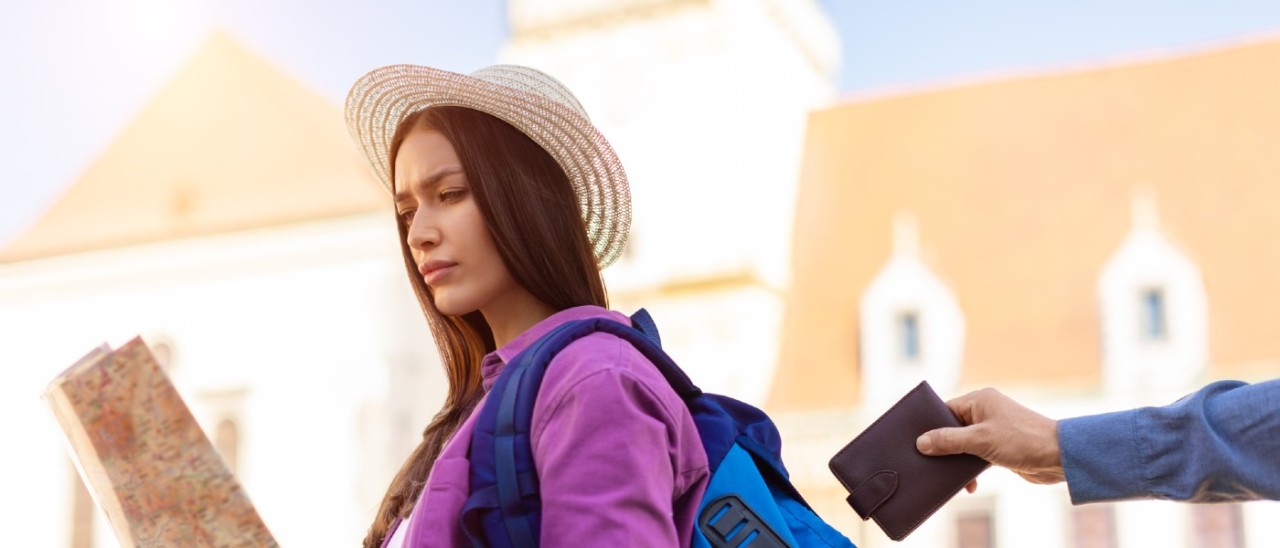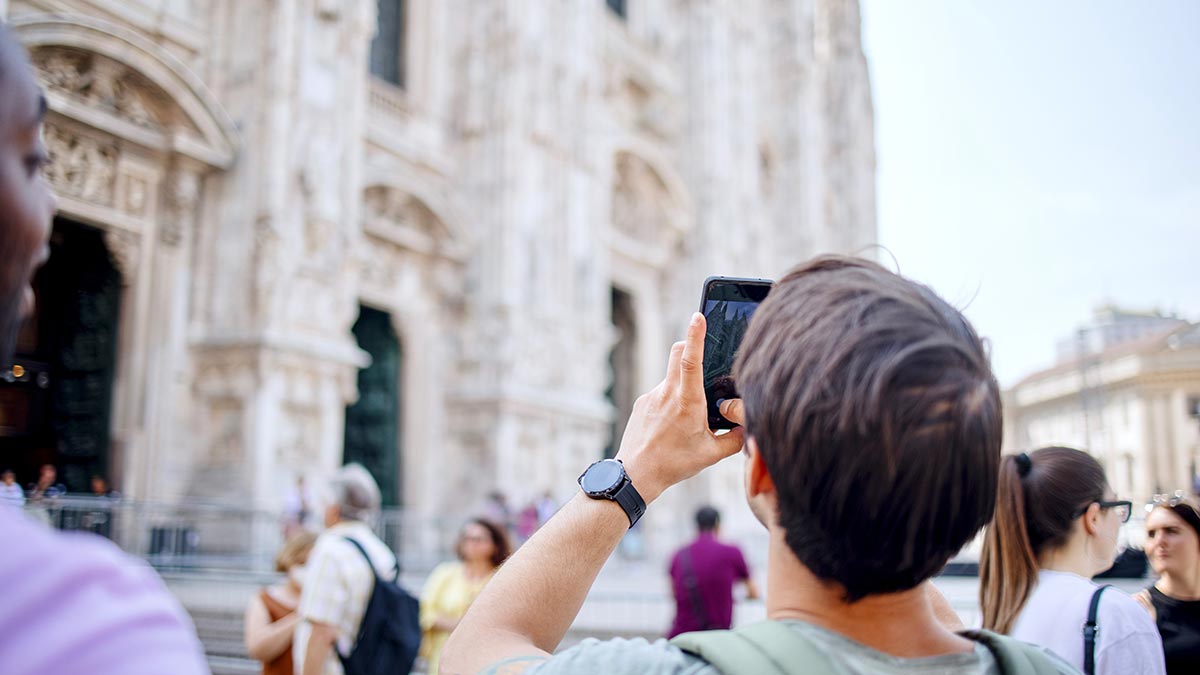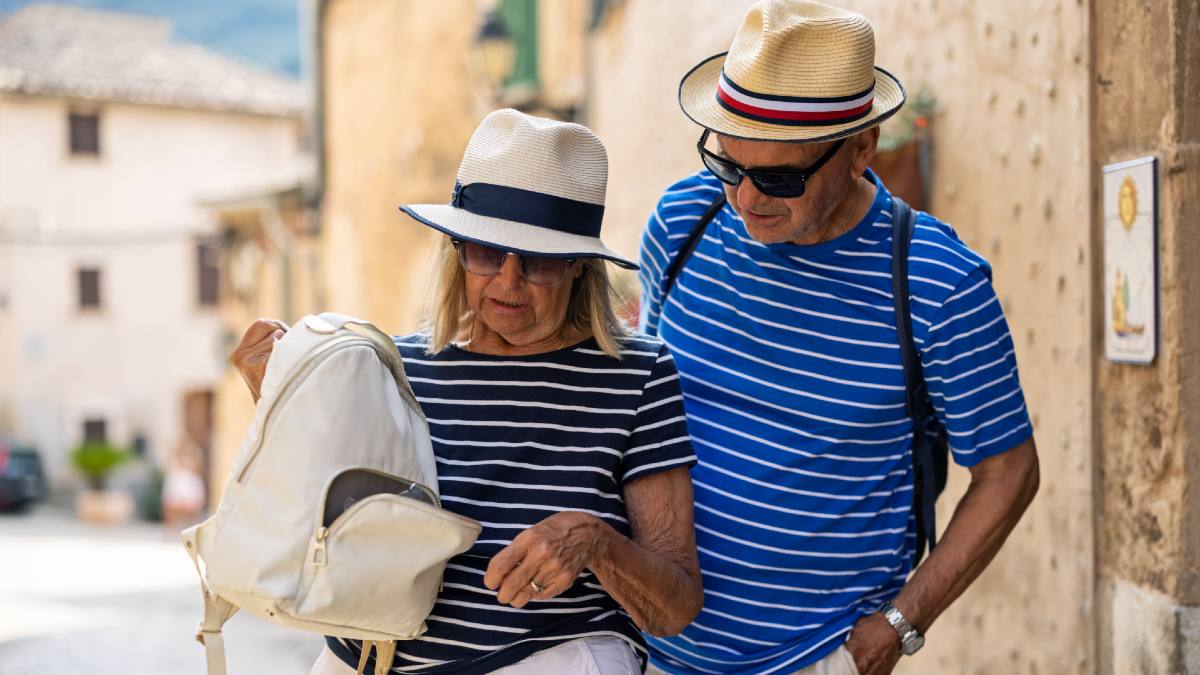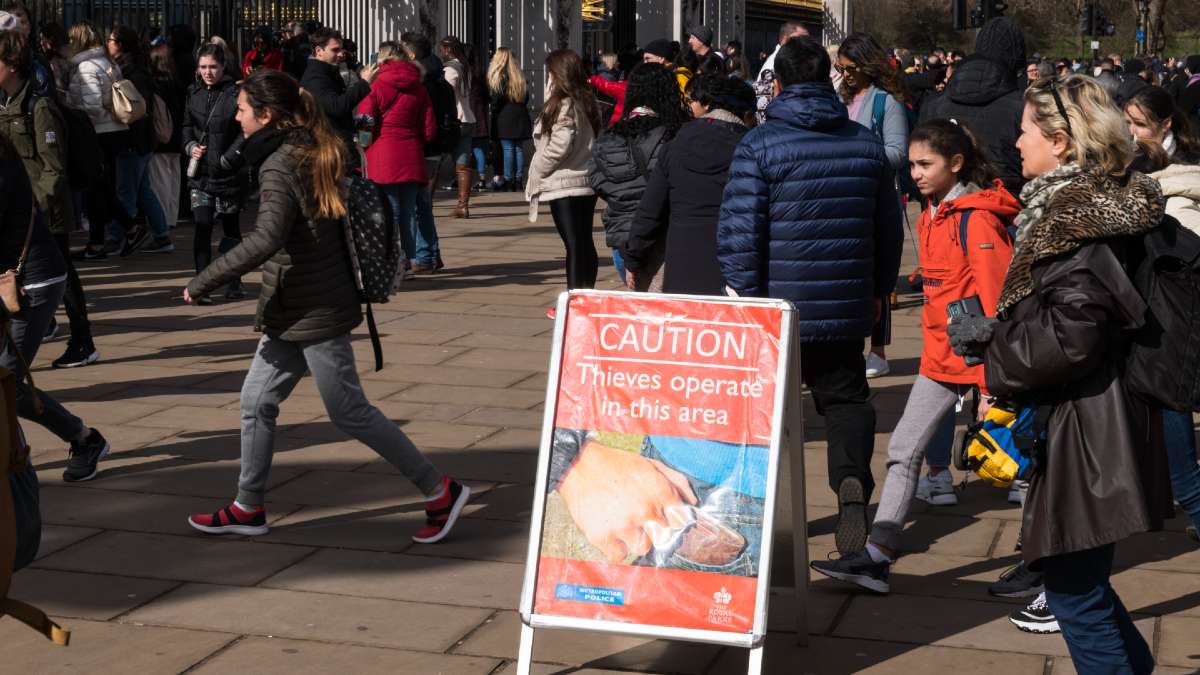Thousands of Australian passports are reported lost or stolen each year, so here’s how to keep your passport safe when travelling overseas – and what to do in case of emergency.
Best anti-theft bags & avoiding pickpockets when travelling

Every year, travel insurance providers process thousands of claims relating to stolen belongings. Instead of seeing the sights and enjoying your time away, you could find yourself dealing with paperwork and bureaucracy.
Before you travel overseas, always check Smartraveller for the latest information on crime hotspots around the world. The Australian Government website advises that crimes such as passport theft, pickpocketing, bag snatching, burglaries and muggings are common in Europe, Asia and other international destinations, particularly near popular tourist destinations and in summer.
If you’re concerned about theft, then anti-theft bags with enhanced security features can help provide peace of mind. Combined with street smarts to avoid unnecessary risks, these bags can help deter opportunistic thieves operating on public transport, in crowded tourist areas, and at landmarks.
This guide covers the key features of anti-theft bags, along with tips on how to be street smart while travelling overseas.

Stay alert for pickpockets in tourist areas such as the Duomo in Milan, Italy, especially when you're taking photos. Image: Getty
How to avoid theft and pickpockets overseas
What are anti-theft bags?
Anti-theft handbags and bag straps are crafted from materials like nylon, polyester, and steel mesh, and designed with travel safety in mind. Many of these bags feature hidden pockets and RFID blocking layers to prevent your credit cards from being read or scanned while inside.
Over the years, these bags have evolved from purely functional items to stylish accessories. Whether you prefer a quilted crossbody shoulder bag, a floral sling bag, a business-like grey backpack, or a neon green courier bag, there is a design to suit your style.
As well as hidden pockets and lockable zippers, there is often the extra feature of built-in, TSA-approved combination locks that have flexible and slash-resistant cables and cords. These locks can be secured to public transport, bike racks and similar stationary objects.
If you're not familiar with TSA-approved locks, these are designed to be opened by Transportation Security Administration (TSA) agents using a master key, allowing them to inspect luggage without damaging the lock or the bag.
If you have a suitcase or bag with a TSA-approved combination lock, set a unique, memorable password that you don't need to write down or share and use these locks whenever you're in transit or your luggage is left unattended at a hotel. A little bit of paranoia goes a long way when you’re far from home.
Why do anti-theft bag features matter?
Losing your passport or critical medications while on a trip overseas can ruin your holiday. Anti-theft bags have several security features to deter theft and protect belongings and travel documents. Opportunistic thieves home in on tourists who are easy targets. If your bags are locked, slice-proof and difficult to access, they'll move on to someone else who won’t slow them down.
These bags are also excellent for use when you're not on holidays. If you're transporting sensitive documents between your home office and your company office, it's important to know that they’ll be safe during your commute. If you're attending a conference, concert or festival, being able to secure your belongings allows you to relax and enjoy your time.

Always zip up your bag and consider getting an anti-theft bag to help deter thieves. Image: Getty
Do you need to wrap your luggage in plastic at the airport?
Most airports have plastic wrapping services so you can wrap your suitcases and other luggage items when you're travelling. It's not a necessity, but there are some advantages to using these services.
Plastic wrapping makes your luggage less susceptible to theft and interference because it's harder to access. It also adds a layer of protection. If you've invested in expensive, quality luggage pieces or high end brands, the plastic wrapping can help prevent scuff marks and scratches during transit.
The most important reason to wrap your luggage is that it can give you more peace of mind. Holidays should be fun - not having to worry about your bags makes the trip far more enjoyable.
More: What happens with lost or stolen luggage at the airport?
How to be street smart when travelling
Check Smartraveller for any updates about the countries you intend to visit before you leave Australia. The website has information about areas of crime or unrest, and places to avoid.
Once you reach your destination, take extra care on public transport, in crowded tourist areas, and at landmarks, particularly during the peak summer tourist season. Other areas where thieves are active include:
- railway stations and cruise terminals
- airports, including airside, after passing through airport security
- museums
- beaches
- restaurants and cafes
- nightclubs and bars
- hotel foyers
- car parking areas or car hire companies.
When you're out and about, especially in a country where English isn't widely spoken, it's a good idea to carry the business card or details of the hotel where you’re staying. This can be incredibly useful if you need to show it to a taxi or rickshaw driver to get back to your hotel, especially if you're unable to use your phone to look up the address.
Be cautious with your bags in restaurants and outdoor cafes. Thieves often work in gangs, distracting you while another steals your belongings. Common distractions include asking for help, directions, or deliberately spilling something on you. Violent theft is less common but possible.
When exploring on foot, don't take shortcuts, walk through poorly lit areas, or along back alleys in unfamiliar areas. If you must take a short cut to avoid a disturbance or get somewhere quickly, do so with at least one or two other people. Be alert for any potential risks and avoid demonstrations.

Pay attention to warning signs of pickpockets in the area when you're sightseeing. Image: Getty
Tips to prevent pickpocketing and bag theft overseas
- Use an anti-theft bag. Carry it close to your body when you're in crowded areas.
- Only take the essentials when you go out. Leave expensive jewellery at home or in the safe at your hotel.
- Split your money up and keep it in different pockets and bags. If you're targeted, at least they won't get all your cash.
- Don't travel on public transport without zipping up your bags and keeping them in your line of sight. Generally speaking, travel insurance won't cover luggage items that have been left unattended.
- Try not to look too much like a tourist. Work out where you're going before you leave your hotel so that you’re not distracted by looking at your phone as you walk around.
What to do if your bag or luggage is lost or stolen while travelling or overseas
Travel insurance can help protect you against financial losses. With RACV Travel Insurance, for example, you can choose from a range of plans for cover for stolen or lost luggage, cancellation fees and lost deposits.# However, it's important to read the Product Disclosure Statement so you are aware of what coverage limits, sub-limits and exclusions apply.
If you're a victim of theft while overseas on holiday, report the incident to the authorities as soon as you can. File a report at the local police station and alert the airline if the theft occurs during transit, then lodge your claim. The quickest way to file a travel insurance claim is online, which you can do from anywhere in the world with an internet connection. Attach any supporting documents relevant to your claim, such as receipts, police reports, or medical certificates. The insurer will then assess your claim and contact you if any further information is needed.
Make sure someone you trust has digital copies of your travel documents, passports and medical information.
The information provided is general advice only. Before making any decisions please consider your own circumstances and the Product Disclosure Statement and Target Market Determinations. For copies, visit racv.com.au. Royal Automobile Club of Victoria (RACV) Ltd AR 001243563 is an authorised representative of the issuer and receives commission for each policy sold or renewed. RACV Travel Insurance issued by Tokio Marine & Nichido Fire Insurance Co., Ltd ABN 80 000 438 291 AFSL 246 548. Terms & conditions apply, refer to the PDS.
# Limits, sub-limits and exclusions apply. Refer to the Product Disclosure Statement for full details.


